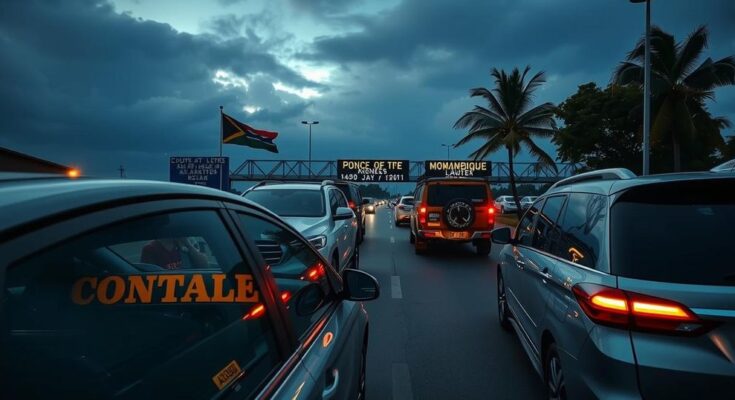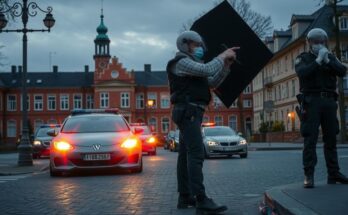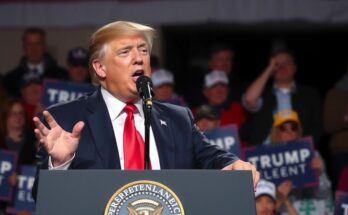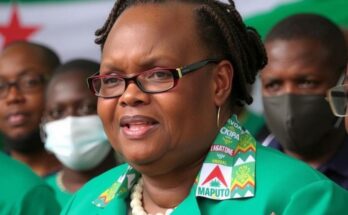South Africa closed its border with Mozambique amid rising post-election violence, leading to significant unrest after contested elections on October 9. At least 20 people have died in the protests, with opposition leaders accusing the ruling party of electoral fraud. As violence escalates, South African authorities have warned against non-essential travel to Mozambique and cited security breaches at border posts.
In response to escalating post-election violence in Mozambique, South Africa has taken the abrupt step of closing its border with its neighboring country. Initially, the border was partially opened on Thursday before the authorities quickly reversed that decision due to intensified clashes between protesters and police. Amid warnings for South Africans to avoid traveling to Mozambique for non-essential purposes, there have been reports of at least 20 fatalities and numerous injuries since protests ignited following the disputed elections held on October 9. The unrest, primarily led by opposition figures and their supporters, arises from allegations of electoral fraud favoring the ruling Frelimo party, which has maintained power for 49 years. Reports indicate that police in the capital, Maputo, deployed teargas to disperse crowds, and images circulated online depict significant protests. Opposition leader Venancio Mondlane, who garnered 20% of the presidential vote, has reportedly fled the nation following threats to his safety. The South African Border Management Agency cited security concerns, as 15 Mozambican border officials sought refuge across the border following violent incidents at border posts, during which equipment and supplies were looted. A representative from the agency emphasized the severity of the situation, indicating severe vandalism and chaos at the Mozambican border. South Africa’s International Relations Minister Ronald Lamola expressed profound concern over the violence, noting the loss of lives and the destruction caused by the unrest. The Mozambican government has threatened military action to restore order, accusing demonstrators of attempting to undermine a legally elected government, while reports of internet disruptions complicate communication within Mozambique. Human rights advocates have condemned the government’s response to the protests, characterizing it as a severe infringement on civil liberties. The constitutional protocol stipulates that, despite the official announcement of election results by the Mozambique Electoral Commission, it is the Constitutional Council that will address any protests or disputes, a process now complicating an already tense political climate.
The current situation in Mozambique has emerged from a contentious electoral process in which the ruling Frelimo party extended its long-standing dominance amid accusations of electoral fraud and violence. Following the elections on October 9, protests erupted, leading to the civilian casualties and significant unrest. The government’s stringent response, involving threats of military intervention and the disruption of communication channels, has sparked widespread criticism from human rights organizations, marking a critical point in Mozambique’s fragile democracy. As regional tensions escalate, South Africa has prioritized security and safety, reflecting broader implications for cross-border relations influenced by domestic political crises. This unfolding scenario highlights the intersection of governance, human rights, and international diplomacy in Southern Africa.
The recent closure of the South African border with Mozambique exemplifies the heightened tensions and dire conditions stemming from post-election violence in Mozambique. As the situation evolves, the potential for increased instability poses significant challenges not only for Mozambique but also for regional security in Southern Africa. The actions taken by the Mozambican government and the international community’s response will be critical in shaping the future of democratic processes in the region, as well as the protection of citizens’ rights amidst escalating unrest. The ongoing protests and government crackdowns underscore the delicate balance between maintaining order and respecting democratic principles, necessitating vigilant observation and engagement from neighboring countries and international human rights organizations.
Original Source: guernseypress.com




